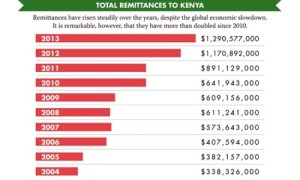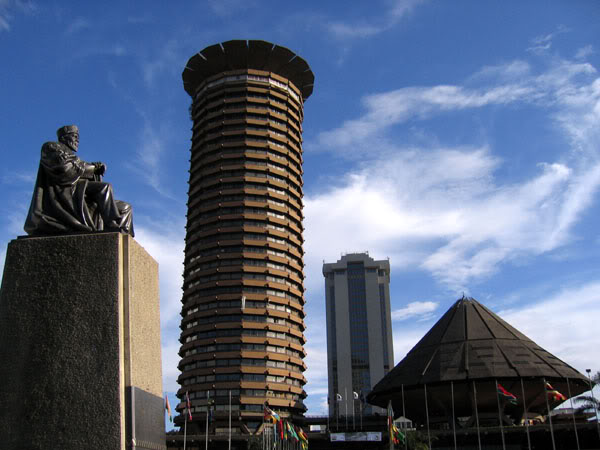
With the best performing stock exchange in Africa in 2013, Nairobi is leveraging its resources as the gateway for investment in the continent, while wireless technology is making banking easier for the average Kenyan
It’s not unusual here to see Masai herdsmen using their mobile phone to make payments from their remote village. In a rural country where few people have bank accounts and where Internet access remains limited to big cities, millions have embraced this cutting-edge technology. Titled M-Pesa (M standing for mobile, and “pesa” meaning “money” in Swahili), the service means people do not have to travel miles to the nearest bank nor carry important amounts of cash. Indeed, it is estimated that over 50% of the adult population use it to pay for shopping, utility bills, a taxi ride, or send money to relatives.
“The beauty of technology is that it is a great equalizer and it has enabled us to wipe out the advantage previously held by developed countries,” says CEO of Chase Bank Kenya, Duncan Kabui.
“Many developing countries now have what developed countries have taken decades to achieve in terms of bringing banking solutions and financial inclusion to the masses. It has taken us just a couple of years.”
The boom of mobile telephony has been key in Kenya’s finance and banking sector, just as it has in other sectors of the economy. “Chase Bank has jumped on the bandwagon,” adds Mr. Kabui. “We see it as a key part of our progress.”
The growing role of technology in Kenyan banking is emblematic of the evolution of the country’s financial and banking sector over the past few years. Concluding a mission in Nairobi in July, the International Monetary Fund remarked that, “Kenya’s expanding financial sector remains robust, and the ongoing process of financial inclusion has opened up the possibility of extending credit at more affordable rates to small and medium-sized enterprises”, and that, “efforts to develop Nairobi into a regional hub for financial services have advanced.”

CEO of Nairobi’s Securities Exchange (NSE), Peter Mwangi says that in the past seven years, the government has raised close to 995 billion shillings ($7.6 billion) through the capital market. “We have demonstrated that domestic capital can be mobilized for development and we have created opportunities for domestic investors, retail, institutional investors and pension funds,” he says.
As the NSE is set to become the second publicly traded African bourse, with an initial public offering (IPO) taking place from 24 July to 12 August this year, Mr. Mwangi is upbeat about the evolution of Kenya’s economy and indeed, of the whole of East Africa. “For investors looking for opportunities, Africa is a good story and East Africa is particularly a hot spot. And the gateway to East Africa is Nairobi. Anyone looking for exposure to this region should be investing in the listed companies here who are venturing into the wider East African region,” he emphasizes.
“Our goal is to become the heart of capital markets in Africa,” states the CEO of the Capital Markets Authority, Paul Murithi Muthaura. “We are looking at the full spectrum of what we need to do for market infrastructure and the empowerment of industries. We are using a multiple approach, but we put the emphasis on SMEs because they will be the engine of the country. We have a new listing segment called the ‘growth and enterprise market segment’, which was designed specifically to improve access for SMEs to public financial markets.”
One of the priorities of the NSE and Kenyan authorities is to attract investment from the Diaspora in the United States. With about 92,000 people, it is the largest Kenyan Diaspora and it has economic clout. Actually, its most prominent member is a second generation half-Kenyan and his name is Barack Obama.















